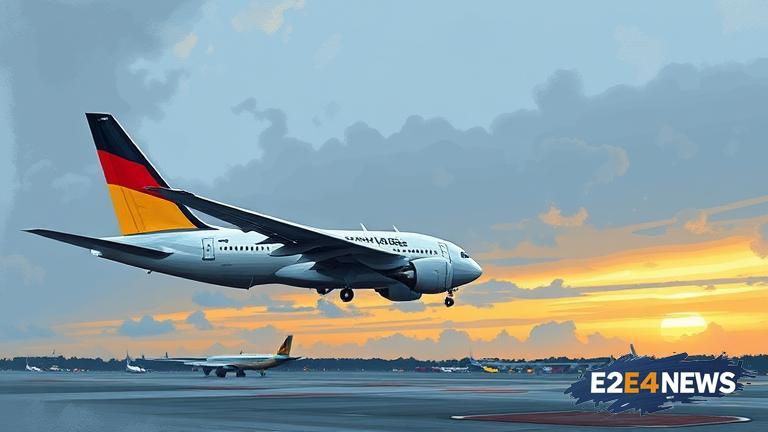The German government has announced plans to reconsider a tax hike on flights, which was introduced in 2020 to reduce carbon emissions. The tax hike, which added €10 to €30 to the cost of each flight, was intended to discourage air travel and promote more environmentally friendly modes of transportation. However, the government is now facing pressure from the airline industry and other stakeholders to roll back the tax hike due to concerns about its impact on the economy and job market. The tax hike has been blamed for a decline in air travel demand, which has resulted in significant losses for airlines and airports. The German government is concerned that the tax hike could lead to further job losses and economic instability, particularly in the wake of the COVID-19 pandemic. The pandemic has already had a devastating impact on the airline industry, with many airlines forced to cut routes and reduce staff. The German government is now weighing the potential benefits of the tax hike against the potential costs, and is considering alternative measures to reduce carbon emissions from air travel. One option being considered is a more targeted approach to reducing emissions, such as increasing taxes on polluting airlines or introducing stricter emissions standards. The government is also looking at ways to support the airline industry, such as providing financial assistance or investing in more efficient aircraft. The decision to reconsider the tax hike has been welcomed by the airline industry, which has argued that it is unfair and ineffective. However, environmental groups have expressed concern that rolling back the tax hike could undermine efforts to reduce carbon emissions and combat climate change. The German government is expected to make a decision on the tax hike in the coming weeks, and it is likely to be a contentious issue. The outcome will depend on a range of factors, including the state of the economy, the impact of the pandemic on the airline industry, and the government’s priorities for reducing carbon emissions. The tax hike has also been criticized for being ineffective in reducing emissions, as many airlines have simply passed on the cost to consumers. Additionally, the tax hike has been blamed for a decline in tourism, which is a significant contributor to the German economy. The German government is now facing a difficult balancing act, as it seeks to reduce carbon emissions while also supporting the airline industry and promoting economic growth. The decision on the tax hike will have significant implications for the airline industry, the environment, and the German economy as a whole.





